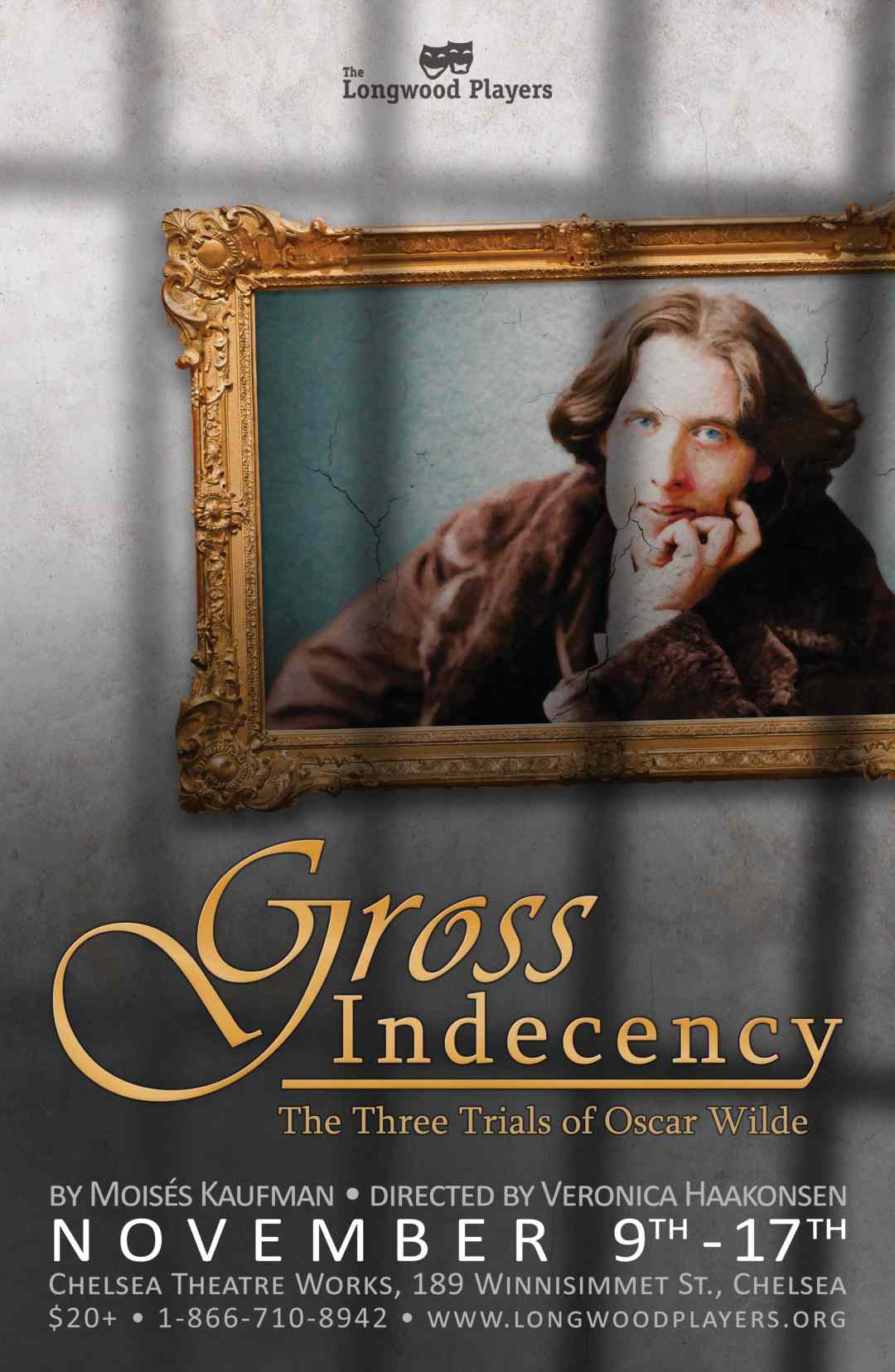Gross Indecency: The Three Trials of Oscar Wilde

Gross Indecency: The Three Trials of Oscar Wilde
by Moisés Kaufman
Directed by Veronica Haakonsen
November 9-17, 2018
Chelsea Theatre Works
189 Winnisimmet St., Chelsea
Cast
| Ben Jamieson | Oscar Wilde | |
| Nick Osborne | Lord Alfred Douglas, Narrator 7 | |
| Jack Sinnott | Queensberry, Gill, Narrator 8, Others | |
| June Kfoury | Clarke, Others, Narrator 6 | |
| Meghan Hornblower | Carson, Narrator 5 | |
| Nick Bennett-Zendzian | Narrator 1, Wood, Shaw, Others | |
| Patrick McCormick | Narrator 2, Atkins, Wright, Others | |
| Michael Vestergaard | Narrator 3, Parker, Harris, Others | |
| Matt Volpe | Narrator 4, Mavor, Marvin Taylor, Lockwood, Others |
Crew
| Director | Veronica Haakonsen | |
| Stage Manager | Rachel Clay | |
| Production Manager | Ben Blier | |
| Set Designer | John Randell | |
| Light Designer | Erik Fox | |
| Costume Designer | Heather Oshinsky | |
| Technical Director | Mark DiGiovanni | |
| Scenic Artist | Maggie Kearnan | |
| Dialect Coach | Jamie Shannon Ferguson | |
| Dramaturg | Gabrielle Jaques | |
| Wardrobe Manager | Claire Wilms |
